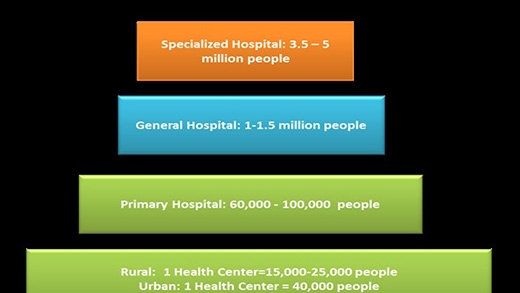Through a World Bank-funded program, citizens can participate in improving the quality of public services, including health, education, rural roads, agriculture and water and sanitation. The Social Accountability (SA) component of the Promoting Basic Services Program Phase II (PBSII), a multi-donor initiative launched in 2006, helped establish a system for citizen participation by entrenching transparency and accountability at local and community levels. This also helps citizens hold policymakers and service providers accountable for their performance.
“Prior to the introduction of Social Accountability in this woreda I did not even know what it meant,” said Firehiwot Mamo, a resident of Woreda 11, one of 232 woredas where the SA program has been implemented. “Once I became aware of Social Accountability, I quickly realized that I can use it to voice my needs and concerns and I became a member of social accountability committee and started encouraging others like me to get involved.”
Frehiwot said before the SA program, the health center was not accessible to people with disabilities, and was associated with sub-standard services, long queues, poor sanitation facilities, a shortage of medical supplies, and lack of accountability among health care providers. Through the SA program, which empowers more than 8,800 citizens and 20 citizen groups, things have changed.
“We demanded equal access and the service providers agreed and build a wheelchair ramp,” said Frehiwot.
Under its current phase, the PBS program provides grants to 49 local non-governmental organizations who work as social accountability implementing partners (SAIPs) with local organizations, especially targeting vulnerable groups for participation in the process, such as the elderly, people living with HIV, women, and people with disabilities. This has led to marked improvements in service delivery at both the woreda, or district levels, as well as local, or kebele levels.
The SA process begins by providing information to citizens about service standards, plans, targets and budget. Armed with this information, citizen’s use report cards to rate the services they have received. Then the citizens have meetings with service providers to discuss the issues, and identify and agree on solutions, and create a Joint Action Plan is created and implemented. The process and improvements are monitored by the SA Committee.
“Prior to the program, we did not care much about the views or complaints of our customers, said Mesfin Beyene, Head of Woreda 11 Health Center. “We had no systematic way of getting feedback about our services. The SA program has allowed us to openly identify and discuss challenges and find solutions to them. This has led to improvements in the cleanliness of our toilet, availability of drugs, delivery room management and so on. I can now honestly say that we are fulfilling our main duty which is satisfying our customers.”
The improvements in service delivery have increased the confidence of citizens that they can get the services they need at the health center, increasing the number of customers. During a visit to the health center in December 2014, Guang Z. Chen, World Bank Country Director for Ethiopia, had the opportunity to see the improvements and hear from some of the service users and providers.
“This morning, I met the newest customer of the health care center, who entered this world in the delivery room,” Chen said. “She was sleeping peacefully in her mother’s arms. When I asked her mother how she felt, with a smile she told me how relieved she was to have delivered her baby safely in such a clean place with very helpful and skilled health care providers.”
The Social Accountability program brings communities, non-governmental organizations, civil society organizations, and service providers together, the PBS - Ethiopia Social Accountability Program phase 2 (PBS-ESAP2) is making a notable difference in the provision of quality health care services.
In addition to contributing to the overall well-being of Ethiopians, the program is helping to address critical health sector challenges including the reduction in infant and maternal mortality rates and contributing to Ethiopia’s progress toward the Millennium Development Goals.

